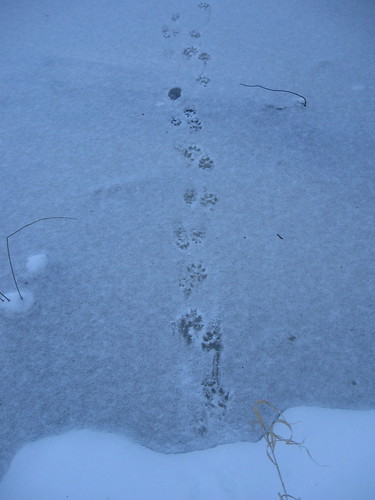Between Thanksgiving and New Years is when my digestive system really wants to kill me. Sugar, and larger, heavier quantities of food and drink along with less sunlight and less exercise really tax my poor digestive system along with overall mental and physical health. I feel sluggish and depressed. It's important to take care of our digestive system at all times of the year, but during the winter it is most important because our bodies our slowing down and (trying!) to rest. Teas and bitters can help our digestive system everyday by stimulating our body and helping it to run quicker and smoother.

Herbal Teas for Digestive Distress
Phyllis Light's Slippery Elm Brew
Slippery Elm (cut and sifted-not powder) - 3 heaping tablespoons
Add Slippery Elm to one gallon of water. Bring to boil and simmer briskly for about one and a half hours. The tea is ready when it turns dark red and the Slippery Elm mostly goes to the bottom. This is an extraordinary soothing tea for any sort of digestive irritation including heartburn, gastritis, diarrhea, irritable bowel, and colitis.
Madelon's Liver Cleansing Tea
2 parts Burdock Root
1 part Dandelion Root
1 part Sarsparilla
1/2 part Yellow Dock
pinch of Ginger
pinch of Cinnamon
pinch Licorice Root
Add two and a half to three tablespoons of herb to one quart of filtered water and bring to boil. Reduce heat and simmer for 20-30 minutes. Let it steep covered for about an hour and strain.
Christopher Hobb's High Mucilage Tea for Irritable Bowel Issues
1 part Flax Seed
1 part Marshmallow Root
1 part Fenugreek
pinch of Licorice Root
pinch of Caraway or Fennel
Add herbs to quart of water and bring to boil. Reduce heat and simmer for forty minutes. After turning off heat, cover and allow to steep for fifteen minutes. Strain and drink tea very frequently when experiencing uncomfortable symptoms.
Madelon's Calming Digestive Tea
2 parts Lemon Balm
1 part Chamomile
1 part Meadowsweet
1/2 part Pepperming
1/2 part Marshmallow
pinch of Licorice
Use 2-3 tablespoons of the mixture to 1 quart of boiling water and infuse for at least in hour.
Kathi Keville's Heartburn Formula
1 part Chamomile
1 part Lemon Balm
1 part Licorice
1/2 part Slippery Elm
1/4 part Fennel Seeds
1/4 part Catnip
Pour 1 1/2 cups very hot eater over the herbs and steep for at least 15 minutes (more time is better). Strain herbs and add 1 1/2 cups of either carrot or apple juice. Store in refrigerator.

Bitters
"Bitters are imperative; everyone needs some bitters in their diet.
No traditional culture could have imagined a diet virtually (if
not absolutely) devoid of any bitter foods—as we seem to have
established in most modern diets. This is not to say that one
should force themselves to eat a bowl of raw dandelion roots,
but to posit that the “medicinal” actions associated with bitters
might be viewed in an entirely different light.
I am a firm believer in Bitter Deficiency Syndrome; a no-
tion that posits that much of the health woes faced by modern
folk has at its root a lack of bitter flavor in the diet; and that
many of the digestive problems for which we see bitters as a
“remedy” are actually symptoms of deficiency of this flavor.
Perhaps it is not right to think that bitters should be used to
treat sluggish digestion, but that a lack of bitter flavor in one’s
diet can be a cause of sluggish digestion. Perhaps many of the
conditions calling for bitters as a remedy arise from their omis-
sion, not unlike rickets arises from a lack of vitamin D.
I was first introduced to the idea of bitter deficiency syn-
drome by James Green, who wrote in The Male Herbal:
"It is my opinion that the nearly complete lack of bitter
flavored foods in the overall U.S. and Canadian diet is a
major contributing factor to common cultural health im-
balances such as PMS, other female and male sexual organ
dysfunctions, hormonal imbalances, migraine headache,
indigestion, liver and gall bladder dysfunction, abnormal
metabolism, hypoglycemia, diabetes, etc. "" - Blessed Bitters
by jim mcdonald
not absolutely) devoid of any bitter foods—as we seem to have
established in most modern diets. This is not to say that one
should force themselves to eat a bowl of raw dandelion roots,
but to posit that the “medicinal” actions associated with bitters
might be viewed in an entirely different light.
I am a firm believer in Bitter Deficiency Syndrome; a no-
tion that posits that much of the health woes faced by modern
folk has at its root a lack of bitter flavor in the diet; and that
many of the digestive problems for which we see bitters as a
“remedy” are actually symptoms of deficiency of this flavor.
Perhaps it is not right to think that bitters should be used to
treat sluggish digestion, but that a lack of bitter flavor in one’s
diet can be a cause of sluggish digestion. Perhaps many of the
conditions calling for bitters as a remedy arise from their omis-
sion, not unlike rickets arises from a lack of vitamin D.
I was first introduced to the idea of bitter deficiency syn-
drome by James Green, who wrote in The Male Herbal:
"It is my opinion that the nearly complete lack of bitter
flavored foods in the overall U.S. and Canadian diet is a
major contributing factor to common cultural health im-
balances such as PMS, other female and male sexual organ
dysfunctions, hormonal imbalances, migraine headache,
indigestion, liver and gall bladder dysfunction, abnormal
metabolism, hypoglycemia, diabetes, etc. "" - Blessed Bitters
by jim mcdonald
Bitters stimulate the salivary glands to produce more saliva and stimulate the stomach to release more acid to help break down food. Bitters also stimulate the pancreas to secrete digestive enzymes and the liver to increase the flow of bile. Because the stomach acid production tend to decrease with age, bitters can be helpful for elderly people with sluggish digestion. In the traditional medicine of Europe and China, bitter herbs are used to strengthen digestions, improve functioning of the nervous system and enhance vital energy in the body. Bitter herbs and foods stabilize blood sugar levels and reduce food cravings. They have a regulatory effect on the hormones released by the pancreas.
When to use bitters:
Poor fat digestion
Poor protein digestion
Weakness due to chronic illness
Intestinal cramps and excessive gas
Irritable Bowel Syndrome
Anemia
Excessive cravings for sweets
Bitters Formula:
1 part Artichoke
1 part Orange Peel
1/4 part Gentian
1/4 part Cardamom
1/4 part Ginger
This can be made into a tincture or a bitters tea which is simmered for 30 minutes. Other bitter herbs include dandelion, yarrow, and peach

